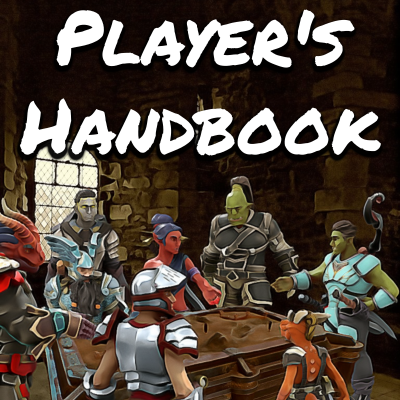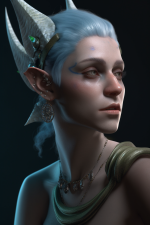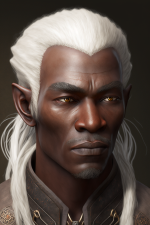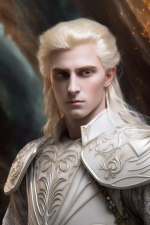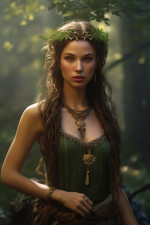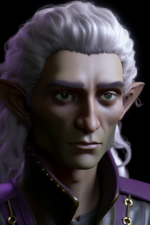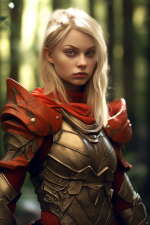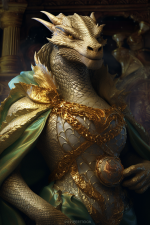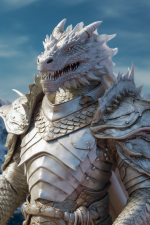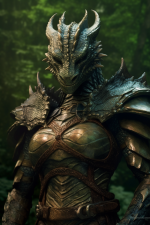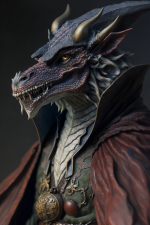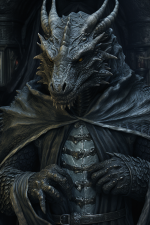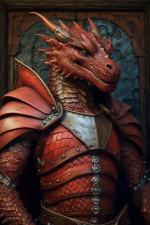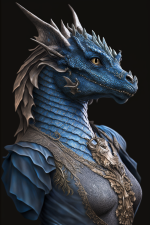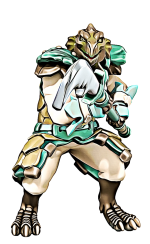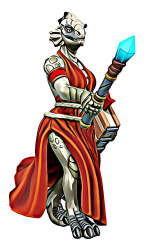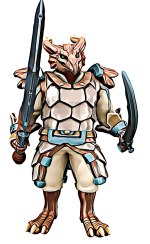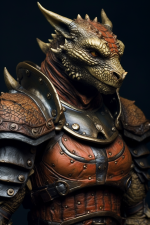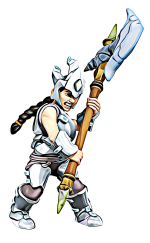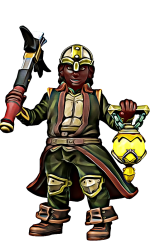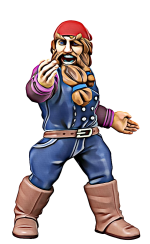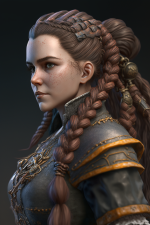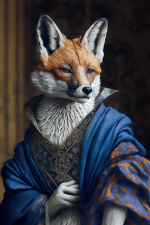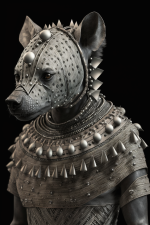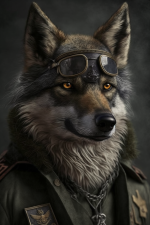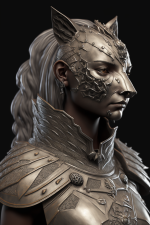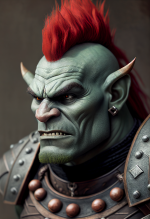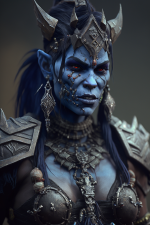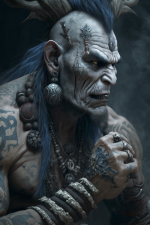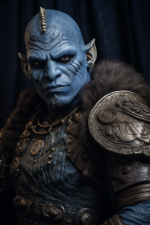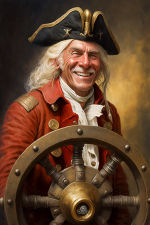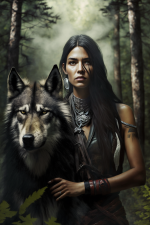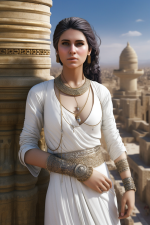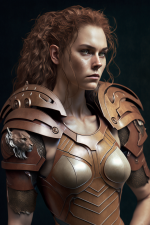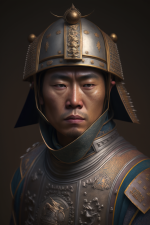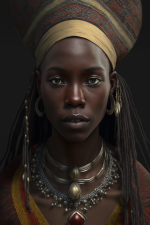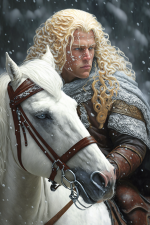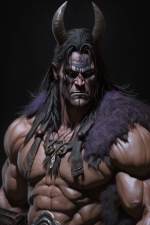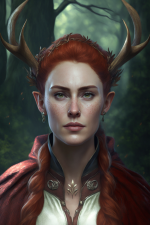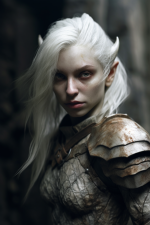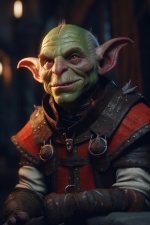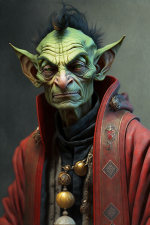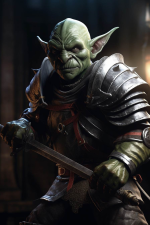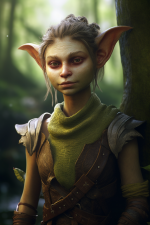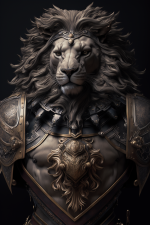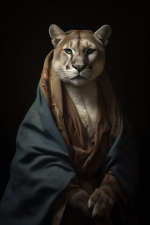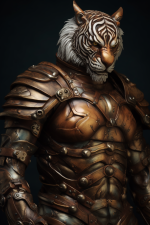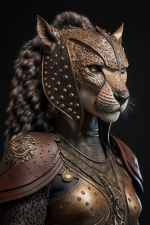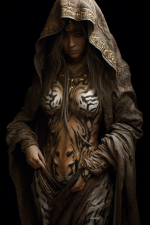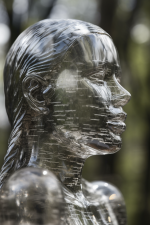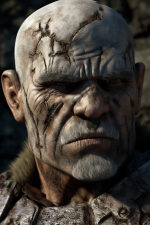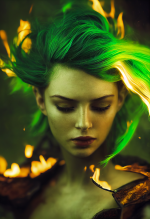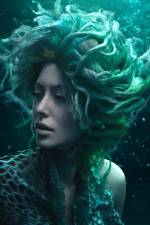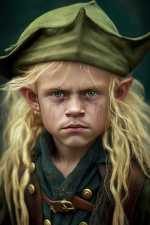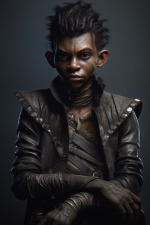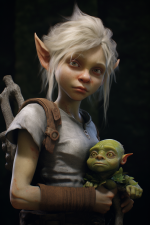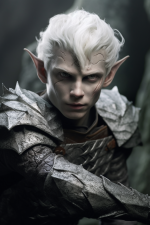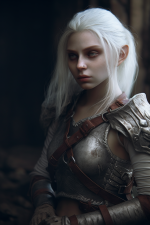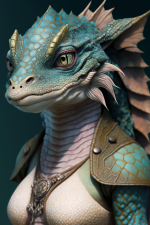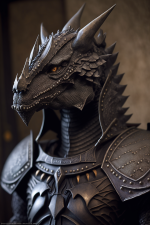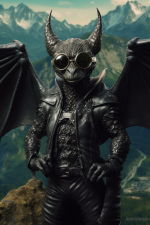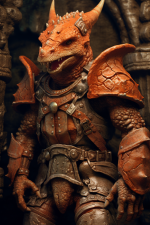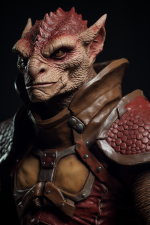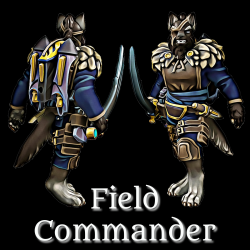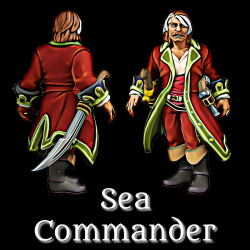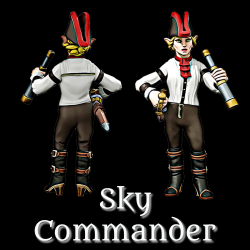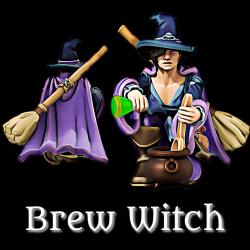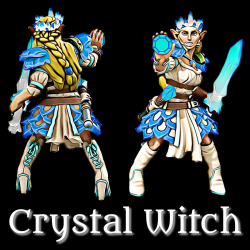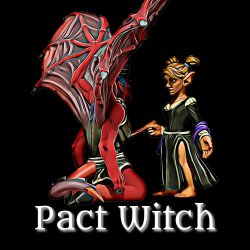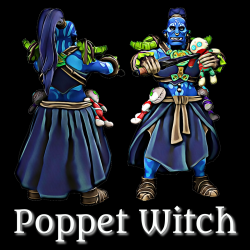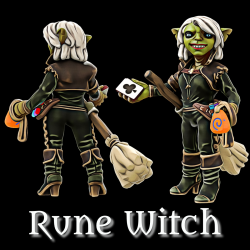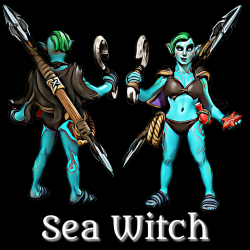Difference between revisions of "Player's Handbook"
(→Witch) |
(→Witch) |
||
| Line 339: | Line 339: | ||
| style="height:250px; width:250px; text-align:left;" |[[File:PoppetWitch.png|center|250px|link=Poppet Witch]] | | style="height:250px; width:250px; text-align:left;" |[[File:PoppetWitch.png|center|250px|link=Poppet Witch]] | ||
| style="height:250px; width:250px; text-align:left;" |[[File:RuneWitch.png|center|250px|link=Rune Witch]] | | style="height:250px; width:250px; text-align:left;" |[[File:RuneWitch.png|center|250px|link=Rune Witch]] | ||
| − | | style="height:250px; width:250px; text-align:left;" |[[File:SeaWitch.png|center|250px | + | | style="height:250px; width:250px; text-align:left;" |[[File:SeaWitch.png|center|250px]] |
|- style="vertical-align:top;" | |- style="vertical-align:top;" | ||
|The [[Poppet Witch]] is... | |The [[Poppet Witch]] is... | ||
Revision as of 10:41, 23 January 2022
Player Races
The following are races that may be played by characters in the Otan setting.
Ælf
Legend has it that Ælfes (🔊 Alfs) were put on Otan by Woden himself when the world began. Since then the Elves have divided themselves into three major factions, the Wodælfes, Dunælfes, and Friggælfes. Their differences surround that which they believe to be the true aesthetic. Players wishing to create an Ælf character may choose from one of the following six variants.
| The Brimælfes (🔊 Brim-alf) live undersea, primarily off the coast of Ælfgarad. They prefer to stay beneath the waves and as a result, have little to do with their Ælfen siblings ashore. | The Dunælf (🔊 Dunn-alf) grew distant from their Ælfen cousins again because of an aesthetic preference. The Dunælf preferred darker features in skin tone and over many years, bred accordingly. | The Friggælf (🔊 Frig-alf) is the predominant race and culture in the country of Ælfgarad. They were once intermixed with their Wodælf and Dunælf cousins until rifts in their sense of the artistic aesthetic came to the forefront of their culture and politics. | The Wodælf (🔊 Woah-dalf) are, not surprisingly, the preeminent race and culture found in Ælfwode. They were, most believe, the only variety of Ælf to exist. Their love for Woden and his creation extended to the forests and nature in which they lived. | The Wyrmælf (🔊 Verm-alf) are distant relatives of the Aydahar and by extension, dragons. The Ælfen predilection toward the aesthetic, however, caused them to carefully manage their genetic lines. | The Half-Ælf are half human and Ælf. It is possible on Otan for a Half-Ælf to possess a bloodline which does not have a human half, but this variety of hybrid should be discussed with the DM before creation. |
Aydahar
The Aydahar are a race of draconic-infused humans originally of human origin, but whose ancestors and sometimes parents are of a draconic lineage. When it was learned that dragons and humans could produce offspring, the races of the Aydahar and the similarly draconic blooded Ungir soon came into being.
| The Altin Aydahar of the Altin Aydahar Region, the gold dragon and capitol region of the Aydahar Confederation. The Altin Aydahar have golden-colored skin and features similar to that of their draconic ancestors. | The Aq Aydahar of the white dragon or Koke Aydahar Region have a white coloring to their skin and features that match those of their draconic ancestors. | The Jasil Aydahar are native to the Jasil Aydahar Region of the Aydahar Confederation. They inherit their genetic makeup from green dragon ancestors or possibly even an adult (or older) green dragon parent. | The Jez Aydahar Region of the Aydahar Confederation is home to the hot blooded Jez Aydahar, who share their genetic makeup with brass dragon ancestors. | Native to the Kara Aydahar Region of the Aydahar Confederation, the Kara Aydahar share their genetic makeup with black dragon ancestors. A Kara Aydahar individual may actually have a draconic parent. | The Kizil Aydahar Region of the Aydahar Confederation is home to the hot blooded Kizil Aydahar, who share their genetic makeup with red dragon ancestors. |
| The Koke Aydahar of the Koke Aydahar Region have a blue coloring like that of their draconic ancestors. They can also be distinguished by the rhinoceros like horn on their snouts. | The Kola Aydahar of the Kola Aydahar Region have a bronze coloring like that of their bronze dragon ancestors. They can also be distinguished by the multiple fans and spikes on the backs of their heads. | The Kumis Aydahar of the silver dragon or Kumis Aydahar Region have a metallic silver shine to their skin and features that match those of their silver draconic ancestors. | Native to the Mis Aydahar Region of the Aydahar Confederation, the Mis Aydahar share their genetic makeup with copper dragon ancestors. A Mis Aydahar individual may actually have a draconic parent. | Half-Aydahar can be found throughout much of the Aydahar Confederation and the Free States. They can live in any country on Otan more or less safely, however they prefer to be near others who share draconic blood. |
Dweorg
The Dweorges are a race with a predilection toward mining. A short conversation with a Dweorg will reveal their life's philosophy, which can be reduced to a simple motto; "Treasures await beneath." Genetic and cultural compulsions aside, this motto alone tempts the Dweorges to dig.
| The City Dweorges are the most common variety of Dweorges, inhabiting every city and surrounding area where Dweorges can be found. | The Deep Dweorg are the Dweorgen diggers. These rarely see the surface of Otan and few are known outside of their chosen communities and dig sites. | The Sea Dweorges have a penchant for harvesting the treasures of the oceans. The have made a reputation for themselves in Otan as purveyors of coral, pearls, and other oceanic treasures. | The Half-Dweorg is a hybrid race, half human and half Dweorg. They may have traits and features of either race. |
Garis
Garis legend speaks of a time when the Garis did not inhabit Otan but traveled through the heavens. Always looking to the stars, they have survived and even thrived on Otan, but never feel at home. It seems that endless internal conflict and factional disputes will keep them grounded indefinitely. There are three distinct variant races of Garis which are most readily noted by the shape of their muzzles.
| The Akimsilik are a Garis variant with vulpine features such as a narrow snout and fluffy tail. They live mostly in the Akimsilik Region of the Garis Triumvirate. | The Beybitsilik sport hyena-like features with a short snout, and their heads often crested with a mane that starts from their foreheads and goes down past the back of their necks. | The Ustemdik are another fur covered variant of Garis with strong lupine features and an intimidating gaze. Their fur colorings tend range from black to white with all shades of grey in between. | The Half-Garis are a variant of the Garis race with additional with additional Human bloodlines. They may have varying amounts of fur of nearly any color, and nearly any color of skin beneath. |
Grendel
The Grendel have little patience for human politics and have set out on several occasions to destroy all that is human. Encouraged by the half-human, Half-Grendel warlock Zoranthar Zhanat, the Grendel made war on Ortalyk and Soltustik with varying degrees of success. Only the Accord of Kala Astanals stayed their hands from seeking more human blood.
| The Kalas Grendel are the backbone of Grendel civilization, populating the cities, entering trade and fueling the economy. | The Maerc Grendel are the salt of the Grendel soil. They populate the marshy areas surrounding larger Grendel populations, living off the land and keeping the settlements safe. | The Sogis Grendel are the backbone of Grendel military might. They are raised on a diet of martial training and contempt for the enemies of the Grendel. | The Half-Grendel are hybrids of Human and Grendel ancestry. They may possess dominant traits and features from either lineage. |
Human
| The Araldiktar are an islander people hail from the island nation of Araldar on the western edge of Otan. They are often easily identified by their western dialect of the Otani, their wind-beaten bronze complexions, and their dark features. | The natives of western Otan known as the Batistiktar, mainly inhabiting the country known as the Republic of Batis. Formerly a very withdrawn people, it came to the world's attention that the Batistiktar were exceptional farmers. | These southern people of Ontustik are generally recognizable by their olive complexions, brown eyes and thick black hair. Their most common feature, however, is not physical. They are noted for their devotion to Aspan, the god of the sky. | These central plains people are a melting pot, of most of the people of Otan. The Ortalykshilar come in every size, shape, hair colour and skin tones ranging from snow white to ebony black. |
| These eastern people of Otan are extremely wrapped in their many traditions. Few things in the society of the Sigis Turgindar take place without the ceremony and accoutrements of centuries past. | These southern people of Otan are a matriarchal society and have deep ties that interweave their animist religion with their local and even national politics. | The northern Soltustikter's are very nearly defined by the terribly cold weather of their native country of Soltustik. Forever plunged into cold climate, the Soltustikters are adept and skills to keep themselves warm.. |
Hellspawn
The Hellspawn were simply a variety of humans who had taken to sprout antlers. Speculation and rumors soon followed and they were labeled with the epithet Hellspawn. Having fewer numbers than their otherwise unaltered human tormentors, they embraced the Hellspawn epithet as their racial designation. The thrust behind this decision is that the Hellspawn name tends to inspire fear before it inspires derision, giving their people a survival advantage.
| The Infernal Hellspawn are predominantly human, though they have very pronounced hircine or ovine features. These goat-like features may include horns that resemble folklore regarding regions of the Nether World, from which the Hellspawn took their name. | The Sylvan Hellspawn are quite similar to the Infernal variety with the exception that their features are often more cervine or deer-like. Males my feature full sets of antlers in season, mimicking their cervine counterparts in the forest. | The Half-Hellspawn may have the features and accoutriments of either their Human or Hellspawn parents and ancestors. |
Kuulik
The Kuulik (🔊 Koo-oo-lik) love a bargain and their location is a great place for bargaining. Situated between Human and Grendel territory, they have a knack for serving both sides during times of war and peace alike.
| The Sawdager (🔊 Saw-dah-gur) are perhaps among the most ambitious people in all of Otan. While even the simplest creatures understand basic trade, the Sawdager have perfected trade into an artform. | If ever a buckle was swashed, a Tenizi (🔊 Teh-neet-see) a swashbuckling Tenizi probably swashed it. Their brand of Kuulikishness made fishermen and seafarers of them all. | For anyone who's had an older sibling, they'll have some insight as to how the Uris (🔊 Oo-ris) blend into Kuulik society. They are the martial arm of the race, and are very protective of their smaller brethren. | An Half-Kuulik is the result of a union between a Human and Kuulik. The Half-Kuulik may possess racial traits from either of their parents. Half-Kuuliks are very rare. |
Misik
The Misik are a solitary race native to south-eastern Batis. Because of their detached nature, they rarely venture outside of their settled areas and few go on to become adventurers. For the most part, their existence is known to few outside of Batis.
| The Aristan are leonine humanoids with several distinct traits that separate them from the more common Baris variant. Most notably, the Aristan have a taste for big game, which makes them necessarily gregarious. | The Baris are the most common of the Misik. They can be found in the widest range of colors and markings. Their most distinguishing feature among the Misik is their lack of features, in that they rarely have additional fur forming anything resembling a mane. | Jolbaris | Silewsin | Half-Misik |
Qurilissi
The Qurilissi, better known to some as the "builders" appear in the lore of most of the religions of Otan. Their role was to help create the world by fashioning the mountains and lakes, forests and ice and almost everything that there is on Otan to this very day.
| The Air Qurilissi | The Earth Qurilissi | Fire Qurilissi | Water Qurilissi |
Sweardælf
The Sweardælf (🔊 Sware-dalf) have adapted into variants of themselves based on a combination of culture, tradition, and ethics. The Borgainælfes are the most culturally entrenched with their philosophy and culture setting the groundwork for Sweardælf society. The other varieties of Sweardælf are largely those who have traditionally shunned the mainstream philosophy and large populations, in general, to live their lives on their own terms. The Scraefælfes are the most visibly differentiated because of a genetic predisposition toward albinism.
| The Borgainælf (🔊 Bor-gan-alf) like to bargain. More specifically, they like to borrow things. More specifically than that, they like to borrow things without first asking permission as to whether that thing may be borrowed. | The Fyrthælf (🔊 Firth-alf) are a jungle and forest-loving variety of the Sweardælf. They are gregarious, but keep their tribes to limited numbers and will banish or exile those who do not fit in well enough. | The Geardælf (🔊 Gar-dalf) are the garden variety Sweardælfes who have a genius for agriculture. The Geardælf can make anything grow from a seed and they can make that seed grow larger and more fruitful than anyone else on Otan. | The Scraefælf (🔊 Skrafe-alf) are the most uncommon of the Sweardælfes. Rarely seen on Otan's surface, the Scraefælfes prefer to live underground and have done so since before the Great Erasure. | The Half-Sweardælf is a half human, half Sweardælf mix that may be first generation, or a multiple generational Half-Sweardælf. |
Ungir
The Ungir (🔊 Un-geer) are, for the most part, highly gregarious and industrious people with a penchant for exploring the underground. Their origins come from a combination of human and draconic ancestry with mixtures of different flavors of Aydahar lineage as well. Over time the result of this great mélange of genetic experimentation lead to the current Ungir, plus a few variants.
| The Juzuu (🔊 Joo-zoo-oo) are an aquatic variety of Ungir who are very rare indeed. They sport gills enabling them to live underwater indefinitely, which is inaccessible to many adventuring parties. | The Karangi (🔊 Kare-rahn-jee) are a dark-featured variety of the Ungir who prefer be continuously underground. | Depending on the family line, roughly one in every dozen Ungir produce an Usanin (🔊 Oo-sah-tin). Regardless of their coloring or previous bloodline, they will differ fundamentally by having developed a fully articulated pair of wings. | The Ustinde (🔊 Oo-stin-day) are the surface-dwelling Ungir most commonly known to other races. | Half-Ungir |
Character Classes
Otan is home to many marvels. To fill the roles of the characters needed to create the smooth operation of Otan society, new character classes needed to be acknowledged. They have been added here for the consideration of DM's and players alike.
Commander
The Commander class is...
| The Field Commander is... | The Sea Commander is... | The Sky Commander is... |
Witch
The Witch class is...
| The Brew Witch is... | The Crystal Witch is... | The Pact Witch is... |
| The Poppet Witch is... | The Rune Witch is... | The Sea Witch is... |
